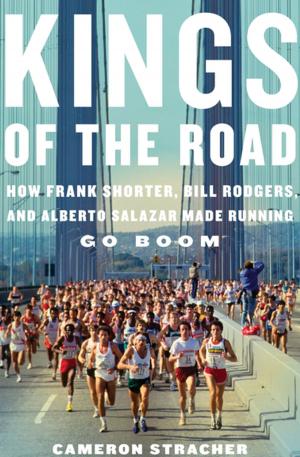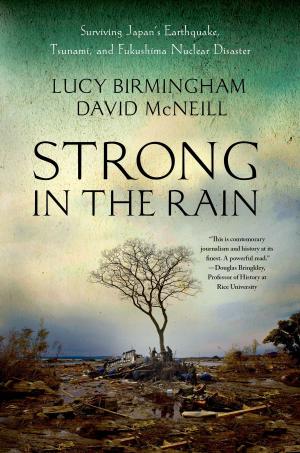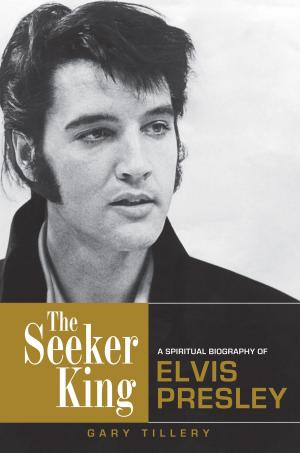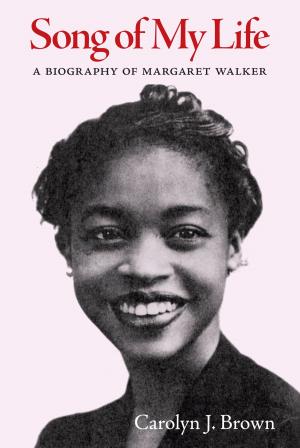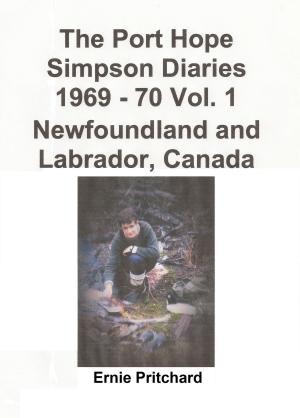| Author: | Eduardo Alberto Antonio Andrade | ISBN: | 9781466128026 |
| Publisher: | Eduardo Alberto Antonio Andrade | Publication: | February 9, 2012 |
| Imprint: | Smashwords Edition | Language: | English |
| Author: | Eduardo Alberto Antonio Andrade |
| ISBN: | 9781466128026 |
| Publisher: | Eduardo Alberto Antonio Andrade |
| Publication: | February 9, 2012 |
| Imprint: | Smashwords Edition |
| Language: | English |
On July 5, 1975 the New York Times ran a small article on the front page announcing the Independence of the Republic of Cape Verde. Upon reading that article, I began my journey as a Cape Verdean American. I began to recognize my heritage in a major way and, with great pride, I adopted the attitude of a Cape Verdean American. Although I knew I was of Cape Verdean heritage, I had always identified publicly as a black American of black Portuguese heritage because Cape Verdeans were virtually unknown. Now I had a nation of my heritage that was part of the larger international community, and it was a great feeling. I had come home!
In 1980, I made my first visit to Cape Verde. I left the United States as a “Cape Verdean American,” but I returned as an “American Caboverdeano.” I was changed. The trip caused me to realize for the first time how much I had inherited the personality and culture of Cape Verde during the course of my lifetime.
Years later, in 2009, I was awarded the honor of a school named for me in New Jersey: the “Edward Andrade School for Social Change.” I mentioned to a friend how humbled I was with the honor, and she said, “You have a legacy!” It was an unexpected comment. As I thought about it, I happened to see an old photo of me at age five. Looking at that photo, I wondered how I could have achieved any sort of legacy from where I started; therefore, it made me think of my past. Reviewing my life’s seventy-five years of experiences, I realized that as the child of first generation Cape Verdean Americans, raised by my immigrant grandparents, I had a beginning with no expectations, with no plans for a future, with few career options, and with limited opportunities. Yet, I became involved in extraordinary adventures; I benefited greatly from significant relationships; I reached an acceptable level of education; I achieved substantial public recognition; overall, I learned to make my way in a society that prizes individual effort; and, taking everything into consideration, I have led a unique life of noteworthy accomplishments. I realized that my legacy, if I have one, is not a school named for me but instead it is my life story – above all, my life as an activist.
My story begins in a segregated, working class, ethnic (Cape Verdean) Massachusetts community and, thus far, brings me to a diverse, middle class, “Posh” coastal Florida town. Many life-stories tell about going from a “Log Cabin” to the greatest heights in politics or in business, but my story fits in between those extremes; it’s about a common man of Cape Verdean heritage – a Caboverdeano, and, optimistically, it is unique.
In my childhood days, I had no clear aspirations for a future or a career. I quit school in the ninth grade because I was an apathetic student with no direction, vacuously existing in my classrooms, believing that college was only for rich kids; I had no clue what a high school diploma meant for my future livelihood.
Following my service in the military as a paratrooper, I became interested in completing high school and attending college. Soon thereafter, I met my mentor, Ernie Thompson, and I began my career as a serious-minded community activist in Newark, New Jersey. Eventually, my activism became exclusively focused in the Cape Verdean community.
Perhaps my most important contribution of my life time has been the establishment of Cape Verdean Television, Cabo Video, the first widely distributed weekly program exclusively produced for Cape Verdean immigrants in the United States.
I have traveled world-wide from China to Africa, and I have lived in several countries since I left home at age fifteen.
If my life has a theme, if it can be summarized to this point, perhaps, it can be portrayed as providential, “A common man lives an engaging life as a community activist.” I have been fortunate, for this has been a focus in my life, and my purpose in this memoir is to share it with others.
On July 5, 1975 the New York Times ran a small article on the front page announcing the Independence of the Republic of Cape Verde. Upon reading that article, I began my journey as a Cape Verdean American. I began to recognize my heritage in a major way and, with great pride, I adopted the attitude of a Cape Verdean American. Although I knew I was of Cape Verdean heritage, I had always identified publicly as a black American of black Portuguese heritage because Cape Verdeans were virtually unknown. Now I had a nation of my heritage that was part of the larger international community, and it was a great feeling. I had come home!
In 1980, I made my first visit to Cape Verde. I left the United States as a “Cape Verdean American,” but I returned as an “American Caboverdeano.” I was changed. The trip caused me to realize for the first time how much I had inherited the personality and culture of Cape Verde during the course of my lifetime.
Years later, in 2009, I was awarded the honor of a school named for me in New Jersey: the “Edward Andrade School for Social Change.” I mentioned to a friend how humbled I was with the honor, and she said, “You have a legacy!” It was an unexpected comment. As I thought about it, I happened to see an old photo of me at age five. Looking at that photo, I wondered how I could have achieved any sort of legacy from where I started; therefore, it made me think of my past. Reviewing my life’s seventy-five years of experiences, I realized that as the child of first generation Cape Verdean Americans, raised by my immigrant grandparents, I had a beginning with no expectations, with no plans for a future, with few career options, and with limited opportunities. Yet, I became involved in extraordinary adventures; I benefited greatly from significant relationships; I reached an acceptable level of education; I achieved substantial public recognition; overall, I learned to make my way in a society that prizes individual effort; and, taking everything into consideration, I have led a unique life of noteworthy accomplishments. I realized that my legacy, if I have one, is not a school named for me but instead it is my life story – above all, my life as an activist.
My story begins in a segregated, working class, ethnic (Cape Verdean) Massachusetts community and, thus far, brings me to a diverse, middle class, “Posh” coastal Florida town. Many life-stories tell about going from a “Log Cabin” to the greatest heights in politics or in business, but my story fits in between those extremes; it’s about a common man of Cape Verdean heritage – a Caboverdeano, and, optimistically, it is unique.
In my childhood days, I had no clear aspirations for a future or a career. I quit school in the ninth grade because I was an apathetic student with no direction, vacuously existing in my classrooms, believing that college was only for rich kids; I had no clue what a high school diploma meant for my future livelihood.
Following my service in the military as a paratrooper, I became interested in completing high school and attending college. Soon thereafter, I met my mentor, Ernie Thompson, and I began my career as a serious-minded community activist in Newark, New Jersey. Eventually, my activism became exclusively focused in the Cape Verdean community.
Perhaps my most important contribution of my life time has been the establishment of Cape Verdean Television, Cabo Video, the first widely distributed weekly program exclusively produced for Cape Verdean immigrants in the United States.
I have traveled world-wide from China to Africa, and I have lived in several countries since I left home at age fifteen.
If my life has a theme, if it can be summarized to this point, perhaps, it can be portrayed as providential, “A common man lives an engaging life as a community activist.” I have been fortunate, for this has been a focus in my life, and my purpose in this memoir is to share it with others.


